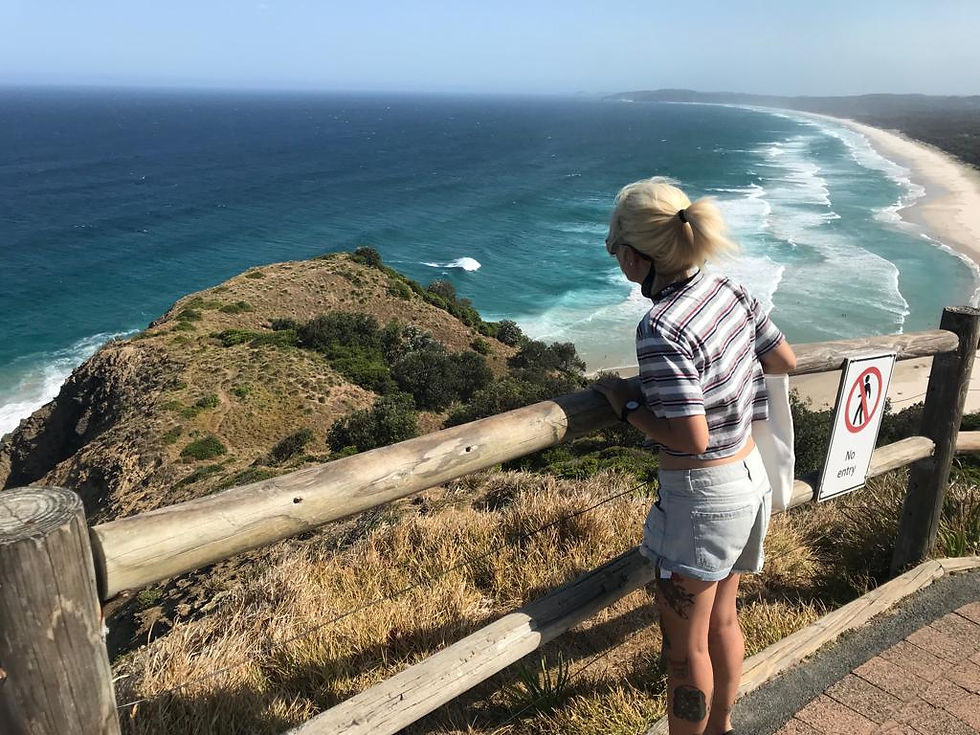From Caring for Herself to Caring for Another: A Personal Story
- Caregivers Alliance Limited
- Dec 8, 2021
- 4 min read
Sirin Yeoh, Graduate, Caregivers-to-Caregivers (C2C-PMHI) Programme
A caregiver opens up about her personal mental health recovery journey, and how she subsequently became a primary caregiver to her loved one

Caring for Self – Depression & Bipolar Disorder
I have struggled with depression since I was a child, but it was only years later that I sought professional help. At age 20, I was officially diagnosed with clinical depression and received treatment for my condition. This would later evolve into diagnosis of bipolar disorder.
The “High”
My very first hypomanic episode happened when I was 23. I had no clue that it was a symptom of bipolar disorder since I had only dealt with depression. During the episode, my life took a 180 degree turn. I felt like I was at the top of my game – I was super energetic and in a constant state of euphoria; I had an inflated sense of self, and I was extremely sociable and productive.
I only slept three or four hours each night for weeks on end, never failing to wake up energised. I was also reckless, impulsive, and made decisions that I regretted later on. At some points I even believed that I had attained enlightenment and that my depression had been miraculously cured. In that state of hypomania, I decided to completely stop my medication and IMH appointments.
This miracle was short-lived. The episode lasted for about three months before my elevated mood dipped back into depression, and my whole world came crashing down.
It was an emotional rollercoaster and I starting suffering an identity crisis – who was I? I felt ashamed that I had sunk back into depression, as if I had regressed in my recovery, and I avoided friends who had seen me during my hypomanic state, embarrassed to face them. I yearned to get back to the “high”.
Finding Out
I didn’t go back to my psychiatrist, until I chanced upon an interview with American comedian Maria Bamford. She spoke about being diagnosed with bipolar II disorder and it resonated deeply with me. I plucked up the courage to schedule an appointment with my doctor, who confirmed my suspicions and officially diagnosed me with bipolar II.
The diagnosis did not make things any easier. I felt lost and alone as I did not know of anyone with the same condition. I could not accept that this condition was going to stick with me forever, and that the episodes are recurrent – it made me feel powerless and out of control. In the early years, because of the extended periods of depression and the tumultuousness that comes with living with bipolar II disorder, I struggled with suicidal ideation and had actually made several attempts to end my life.

Where the Journey of Healing Begins
Now at 28, I’ve managed to achieve some semblance of self-acceptance. After countless rounds of trial-and-error, I was able to find medication and a therapist that has worked for me. Therapy helped tremendously in my journey to acceptance – it made me realise that whether depressed or hypomanic, I was always still myself, just reacting under different conditions.
I am grateful to have a supportive partner by my side, and friends who accept me for who I am. I’ve grown to understand and live with my condition better and most importantly, I’m now focusing on wellness as a whole. I am no longer defining myself by my condition.
Becoming a Caregiver
In the past year, I have taken on the role of primary caregiver to a loved one, whose identity shall remain confidential. I was warned against this decision by my family and therapist as I have just barely learned to take care of myself.
It was an uphill battle at the start. Between juggling a very demanding job and keeping myself afloat, I simply did not have the time nor mental capacity to connect with my loved one. The conflicts that resulted triggered my depression as I was forced to confront a lot of trauma I faced as a child. Eventually, for a multitude of reasons, I left my job to focus on myself and my loved one.
CAL’s C2C came at the right time as I needed to learn to become a better caregiver. Not only did I achieve that, I also gained a better understanding about myself. One of the key takeaways from the course is how important relationship building is when it comes to supporting my loved one’s recovery, and it starts with empathetic, effective communication. With life moving at a more comfortable pace now, I’m able to spend quality time to connect with my loved one, and our relationship has improved drastically.

My Advice – Don’t be afraid to ask questions
Bipolar disorder - and other mental health conditions - exist across a wide spectrum. My advice for everyone, whether you’re a caregiver or not, is not to be afraid to ask questions about one’s experience with mental health. Avoiding the topic of out of fear will only reinforce the stigma. The best way to truly understand our loved ones is to give them a voice, and to hear them out.
Comments